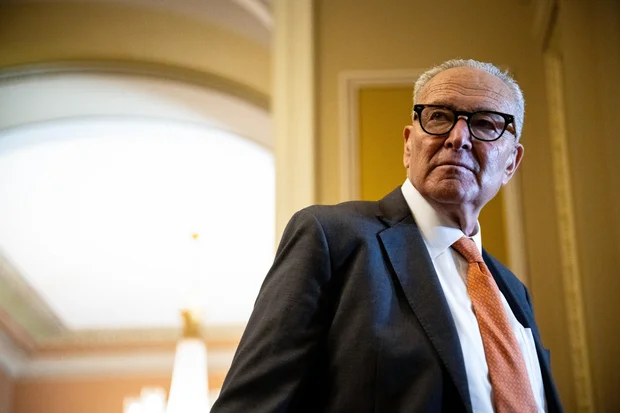Congress remains deeply divided over how to keep the government open as the September funding deadline draws closer. Lawmakers from both parties met this week to explore a path forward, but progress has been slow.
Senate Majority Leader Chuck Schumer dismissed Republican proposals as “not good enough” to meet the needs of Americans, while the White House has requested a stopgap measure to fund the government through January 31. Congressional leaders, however, have generally favored a shorter extension to continue work on full-year appropriations bills.
House Appropriations Committee ranking Democrat Rep. Rosa DeLauro criticized the White House plan, warning it could allow the Trump administration to delay or block funding. The dispute follows last month’s clash over foreign aid, when the administration sought to rescind nearly $5 billion through a rarely used “pocket rescission,” a move that frustrated both Democrats and some Republicans.
House Majority Leader Steve Scalise stressed that no date is final, saying the goal is a bipartisan deal. Still, unresolved issues remain, particularly over the extension of tax credits for Americans who buy insurance through the Affordable Care Act. Those subsidies expire at year’s end, potentially driving premiums higher.
Democrats, including Schumer, argue Republicans are unwilling to negotiate on the subsidy extension and accuse GOP leaders of risking a “nightmare scenario.” Senate Republicans, led by John Thune, are pushing for a “clean” continuing resolution with as few policy riders as possible.
Meanwhile, Congress continues to advance regular appropriations bills, with both chambers working to reconcile measures covering military construction, veterans affairs, agriculture, and the legislative branch.
Sen. Patty Murray, the top Senate Democratic appropriator, said recent bipartisan discussions were “very productive,” but insisted GOP leaders must commit to a bipartisan stopgap. She underscored that Republicans, who control both chambers and the White House, would bear responsibility for a shutdown.
House Speaker Mike Johnson countered that Democrats could be the ones to push the government over the brink. House Minority Leader Hakeem Jeffries rejected that framing, saying Democrats will oppose any stopgap that simply extends “failed Republican policies.”
The looming standoff carries particular weight for Schumer, who faced backlash earlier this year after agreeing to help advance a GOP-backed funding bill despite Democratic objections. This time, he warned Republicans not to expect Democrats to deliver last-minute votes. “If Republicans think Democrats are going to show up at the last minute to bail them out, that would be a big mistake,” Schumer said.

